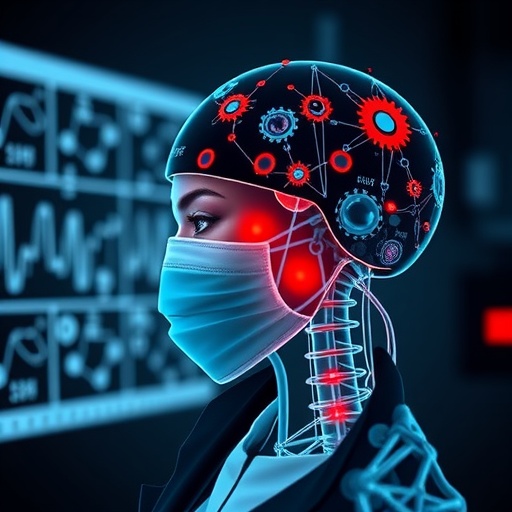In recent years, the landscape of medical education has dramatically shifted, propelled by advancements in artificial intelligence (AI) technology. A notable study conducted by researchers including P. Ratajczak, O. Słowik, and J. Cynar examines how Polish medical university students perceive these AI-based tools. The research is timely, as it not only reflects the budding integration of AI into educational frameworks but also offers insight into the attitudes and readiness of future healthcare professionals to embrace this technological evolution.
Artificial intelligence has emerged as a significant force in various sectors, including healthcare, where its applications are diverse and rapidly expanding. From predictive analytics that assist in early disease detection to personalized treatment plans crafted from vast datasets, the potential for AI to enhance medical outcomes is immense. However, the successful integration of AI into medical education hinges on the perceptions and acceptance of this technology by future healthcare practitioners, who will ultimately wield these tools in real-world scenarios.
In their study, the researchers utilized a comprehensive survey to gauge the sentiments of medical students regarding AI tools currently being incorporated into their curricula. The participants, drawn from multiple universities across Poland, provided valuable feedback regarding their familiarity with AI technologies, perceived benefits, and concerns. This feedback is vital for educators and policymakers as they navigate the complexities of effectively teaching future medical professionals about AI’s potential.
One striking finding from the survey was the apprehension expressed by many students towards AI algorithms. While a sizeable portion recognized the potential efficiencies that AI could bring, there remains a considerable percentage that voiced concerns regarding the reliability of AI-generated information. The fear of over-reliance on technology, which could lead to skill degradation among healthcare providers, emerged as a central theme in the students’ responses.
The study also highlighted the diverse range of AI applications that students have encountered during their studies. These tools varied from simple diagnostic applications to more complex AI-driven simulations designed for practicing clinical decision-making. The multiplicity of AI technologies was appreciated by many students; however, it also led to confusion about the best practices for using these tools effectively and ethically in patient care.
An essential aspect of the research was examining how the students felt their educational institutions were preparing them for a future in medicine increasingly intertwined with technology. Many participants expressed a desire for more hands-on experience with AI tools, emphasizing that theoretical knowledge alone was insufficient. This request is indicative of the changing educational landscape, where practical experience is increasingly regarded as critical for competency.
The interaction between students and AI tools is not solely about learning how to use them but also understanding their implications. Medical students expressed a need for curricula that address the ethical considerations surrounding AI, including issues related to patient privacy, decision-making accountability, and the potential for algorithmic bias. These ethical frameworks are essential for ensuring that future healthcare professionals approach AI technology with a critical lens.
As students progress through their studies, they grapple with the dichotomy of human touch versus technological intervention. Many articulated a belief that the best medical practice is grounded in empathy and human interaction. This sentiment raises a compelling discussion among educators: how can AI and human relationships coexist in the realm of patient care? Striking the right balance is paramount, as students aspire to incorporate the benefits of AI without sacrificing the compassionate aspects integral to the medical profession.
The study’s timing is critical, as the proliferation of AI tools is set to escalate in the coming years. For medical schools, the imperative is clear: prepare students not just to work alongside AI, but to lead and innovate within environments where AI plays a central role. This requires a curriculum that is agile and responsive, capable of evolving alongside technological advancements.
Moreover, the students’ perceptions reveal a broader societal trend regarding the acceptance of AI in various facets of life. As individuals become increasingly accustomed to AI in everyday applications, from virtual assistants to smart home technology, the threshold for accepting AI in healthcare is likely to lower. However, this acceptance will depend heavily on effective education and transparent communication regarding AI’s capabilities and limitations.
Equally important is the role of interdisciplinary collaboration in shaping the future of medical education. By incorporating expertise from fields such as computer science, ethics, and psychology, medical schools can create a more holistic educational experience that envelops the multifaceted nature of AI in medicine. Learning in a collaborative environment fosters innovation and encourages medical students to think critically about the algorithms that may soon govern patient care.
In conclusion, the research conducted by Ratajczak, Słowik, and Cynar serves as a vital barometer of current attitudes among medical students towards AI technologies. As we stand on the cusp of a new era in healthcare, characterized by rapid technological progress, the insights gleaned from this study should inform the evolution of medical education. By addressing students’ concerns and harnessing their enthusiasm for AI, educational institutions can empower future healthcare professionals to use technology not as a replacement for human interaction, but as a powerful ally in delivering better care to patients.
The intersection of technology and healthcare is inevitable, and the commitment to fostering an informed, ethically conscious cohort of medical practitioners will propel the industry forward. As we prepare for tomorrow’s healthcare challenges, an investment in robust medical education that embraces AI is essential for shaping a resilient and innovative medical field.
Subject of Research: Perceptions of AI-based tools among Polish medical university students.
Article Title: Perceptions of AI-based tools among Polish medical university students.
Article References:
Ratajczak, P., Słowik, O., Cynar, J. et al. Perceptions of AI-based tools among Polish medical university students. BMC Med Educ (2025). https://doi.org/10.1186/s12909-025-08326-w
Image Credits: AI Generated
DOI: 10.1186/s12909-025-08326-w
Keywords: AI in medical education, Polish medical students, perceptions of technology, healthcare innovation, ethical implications of AI.




